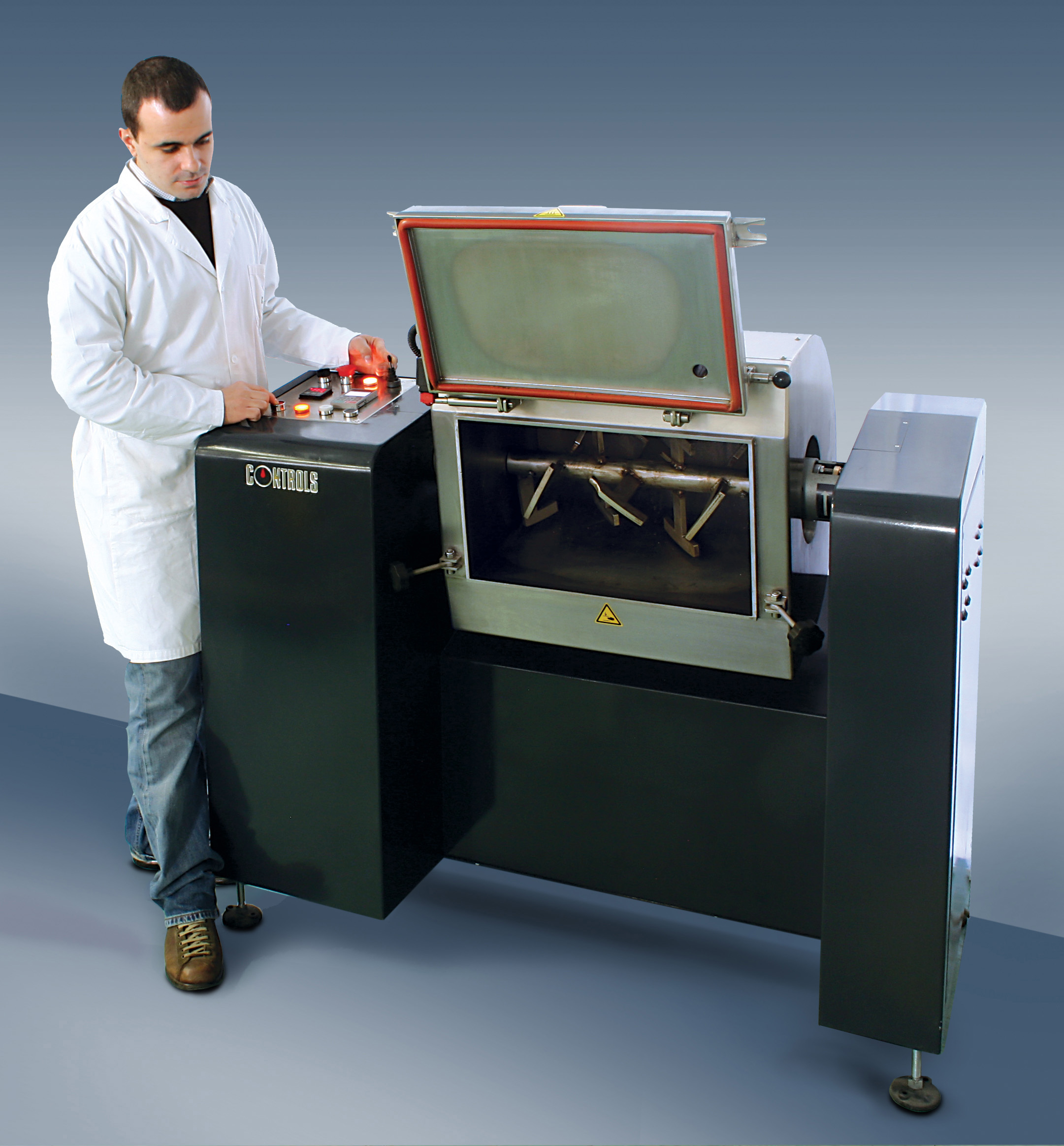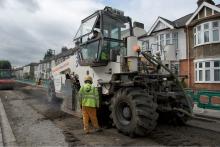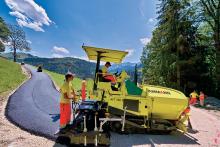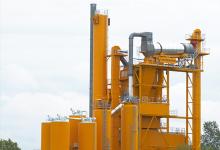
The testing of materials such as concrete and asphalt is essential for sound structures: in many regions it is a legal requirement. Patrick Smith reports
Malta National Laboratory's decision to ask the internationally respected
The eventual commissioning of equipment, relevant training and implementation and auditing of new procedures will mean MNL can make sure that the materials meet defined standards and offer durability, smoothness and long life.
This has already happened in many other parts of the world. The earlier-than-expected deterioration of some US pavements led to the development of the Superpave (SUperior PERforming Asphalt PAVEments) system, offering highway engineers and contractors the tools to design asphalt pavements that will perform better under extremes of temperature and heavy traffic loads. And it was during the peak of construction of the Italian highway system that asphalt and concrete testing equipment manufacturer Controls was formed, to make sure materials met US, English and German standards.
"Such is the industry that it does not stand still for long, and while many basic tests have been around for some time, new and upgraded models are constantly being introduced," said one industry observer.
Road safety is an important target shared by the majority of the companies involved in road design and construction. The growing attention paid to this has had a remarkable effect on the material testing field, encouraged by an increasing market demand for such equipment as well as by the new technical requirements established by international standards.
Asphalt is also under higher stress, and it is being asked to offer even higher performances in order to withstand increasing traffic and meet the standards required by each specific project. Here, for example, studying the plastic permanent deformations [rutting] in hot mix asphalt (HMA) is extremely important to obtain useful information for mix designers: an appropriate mix design will reduce the formation of unevenness on road surface, with positive effects on safety conditions.
Concrete is the most used man-made material in the world and, as with asphalt, mix designs differ, so it must also be rigorously tested before, during and after use in structures such as bridges, roads and buildings.
Indeed, because concrete is an important structural element, testing is mandatory in many regions of the world, and construction companies must provide documentation of their testing and results when asked to do so by government representatives. Test results are also kept on file in case a problem develops in the future.
The testing of materials is designed to make sure they meet quality control standards, comply with any laws which may be relevant, and contain the components people claim they contain.
Asphalt testing is performed for a variety of reasons by an assortment of companies and government highway and road departments.
As well as testing for quality control and consistency reasons (to confirm the asphalt contains the correct materials and is being produced by a company in a uniform nature), asphalt can also be checked for safety in application or, in some instances, to discover why it did not withstand normal use.
Other properties that can be explored include viscosity, ductility, cracking, and penetration. Binders used can also be checked, while equipment is available to rapidly age asphalt to see how it will hold up over a number of years, or to emulate conditions such as those found on trucking routes.
Likewise, a number of different tests can be performed on concrete, both on a job site and in a laboratory. The slump test is a quality control and consistency measure, while other tests can include analysis of the components of concrete to confirm that concrete contains what the manufacturer claims it contains, and to learn more about properties such as durability and permeability.
It is to complete some of these tests that UK-based
The company was awarded the contract to provide asphalt testing equipment to the laboratories involved in this massive and ambitious project.
Among equipment supplied to laboratories at the General Directorate for National Roads and Motorways (GDDKiA) are universal pneumatic systems, testing accessories and temperature-controlled cabinets, large device wheel trackers [used to assess the resistance to rutting of asphalt materials under conditions which simulate the effect of traffic], as well as large device gyratory and roller compactors.
Tecnotest of Italy offers a roller compaction and wheel tracking apparatus, which integrates two distinct functions in a single system: the first allows the compaction of slabs of bituminous mixtures to a controlled density and the second is for performing the wheel tracking test.
A kneading system is used for compaction and consists of positioning between the roller and bituminous mixture a series of sliding metal plates that are free to move vertically, guided by the internal mould surfaces.
The company also developed a compression testing machine for a project involving concrete whose innovative design involved two distinctive measurement scales, the lesser one covering 10% of the larger one.
Controls, like other manufacturers, offers a huge range of testing equipment and its recent introductions have been aimed at the concrete and asphalt testing markets. They include the
"The design and testing of bituminous mixtures includes various laboratory tests such as, for example, the Marshall stability; the gyratory compaction; the Slabs laboratory compaction to prepare specimens for wheel tracking, and determination of stiffness including beam fatigue testing," said Controls.
"To produce the samples to perform these tests it is essential that the preparation of a bituminous mixture is carried out at a reference temperature within a time that is limited in order to reduce mechanical degradation of the aggregates.
"The mixer needs to be capable of entirely coating all mineral substances in not more than five minutes as prescribed by the European EN 12697-35. The 76-B0077/B Bitumix automatic laboratory mixer fully satisfies the standard requirements." The company also recently developed the 80-B0163/C, a specific machine to determine the depth of penetration of mastic asphalt when a static force is applied by a cylindrical pin.
In the US,
Troxler points out that the unit will compact asphalt samples to a specific height or a specific number of gyrations, and the angle of gyration is recorded with every gyration, assuring the operator of the angle stability.
The company's new Gyratory Shear Kit (GSK) measures the compaction effort and will also aid in predicting the behaviour of warm mix asphalt (WMA) and RAP (reclaimed asphalt pavement) mixes.
Gilson's new SG-4 Asphalt Bulk Specific Gravity device is "a quick and accurate method for bulk specific gravity determinations of asphalt cores and gyratory specimens, while among
Italian manufacturer Matest, which includes concrete testing equipment as a core business, has renewed and improved its whole range of compression and flexural machines with the introduction of C109N Cyber-Plus Evolution and C104N Servo-Plus Evolution, the new PC-based and touch screen control units.
These have been developed by its R&D department to offer a new generation of testing machines for semi-automatic (C109N) and fully automatic (C104N) compression, flexural, and splitting tensile tests on concrete specimens.
"Testing concrete specimens using a new model allows the operator to easily control all the test phases (such as system configuration, parameters setting and calibration) and to get reliable and repeatable results," said Matest.RSS








